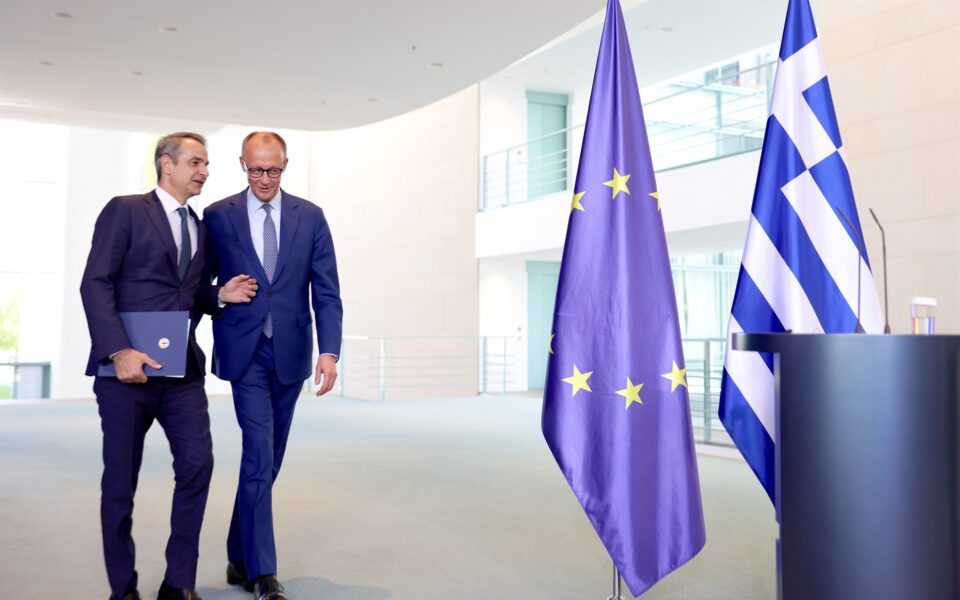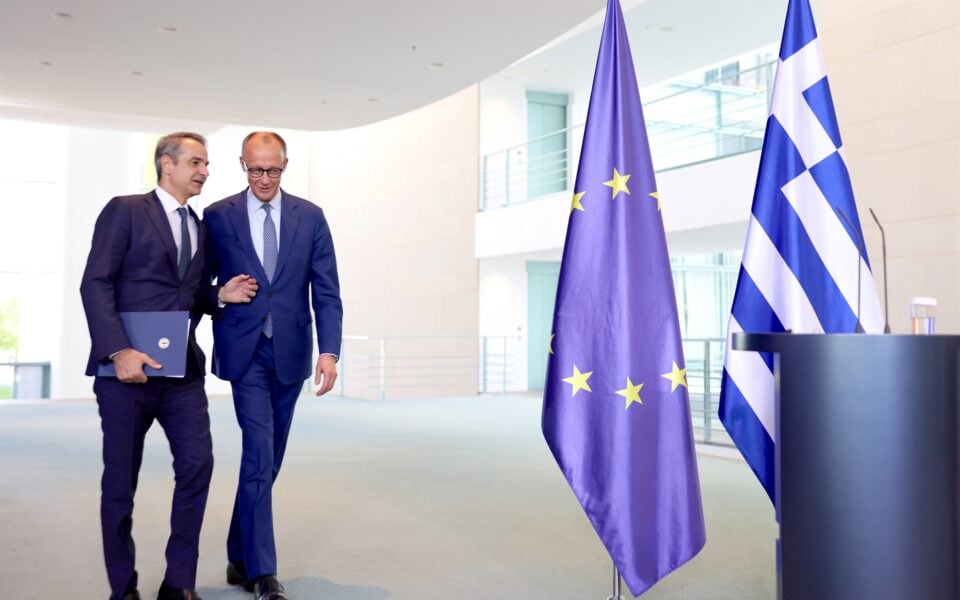
German Chancellor Friedrich Merz (r) and Greek Prime Minister Kyriakos Mitsotakis attend a news conference after talks at the chancellery in Berlin on May 13. [Hannibal Hanschke/EPA]
German Chancellor Friedrich Merz had been venturing deeply into foreign affairs since before taking office. He has taken a tough stance against US President Donald Trump, setting him up for difficult negotiations, noting that Germany would talk to him on behalf of the European Union and after trade disputes had been resolved, while promising to supply Taurus missiles to Ukraine, which his predecessor blocked, hardening Berlin’s stance toward Moscow. Many people in his country considered that he had no reason to expose himself to such an extent, especially in such a fluid international environment.
On European issues, it is clear that the German chancellor wants to take initiatives, strengthening the Franco-German axis and expanding the European Union’s cooperation with important countries outside it, such as the United Kingdom, Norway and Turkey. Berlin is set to significantly increase its defense spending, with an emphasis not only on weapons systems but also on infrastructure, while the recent statement that it intends to allocate 5% of GDP, in satisfaction of the relevant American request, shows a willingness to compromise with Washington and develop a decisive role in European defense issues.
On the two issues that will mostly concern Greek-German relations – migration, the Eurofighters, Europe’s defense – Merz will not make the decisions alone
In this context, Greece and Germany are called upon to maintain their functional relationship, possibly expanding it, given, however, the difficult issues that exist, such as migration and the closer relationship between Berlin and Ankara. Germany will have the opportunity for the first time in many years to get involved in Greece’s new armaments program with good prospects, and possibly this development can be combined with a defense agreement that, under certain conditions, can also offer some lukewarm guarantees, even in the form of a declaration.
Concerning Turkey’s request to acquire Eurofighter jets, as Berlin is part of the consortium that makes them, Greece’s goal is to convince it of the obvious: namely the need to include a relevant clause that will prohibit Turkey from using them against any member-state of the European Union. Similarly, in European defense, Merz’s warm statements about Turkey’s role confirm a trend that prevails in many European circles, however, this position will be judged through tough negotiations.
Germany became active in the Eastern Mediterranean following relevant prompts by the US in 2020, taking advantage of its acceptance by both Greece and Turkey to facilitate discussions between them, something that France could not do. This role brought positive results in de-escalating the high tensions that had been created by the seismic surveys conducted by Turkey’s Oruc Reis research vessel in the region. Berlin maintained this role later on, offering its services in almost every Greek-Turkish crisis after 2020 and until February 2023, while for the first time it also had a discreet presence in the Cyprus issue.
Beyond that, the Eastern Mediterranean is of interest to Germany due to the continued migrant flows and the potential supply of various forms of energy to its market through the Green Aegean Interconnector (a project envisaged to stretch from Greece to Germany’s south and provide a transportation corridor for RES output).
At the same time, German involvement in the Western Balkans will be more active and Greece must become one of its main interlocutors for the European future of the region. However, in the immediate future, Berlin will focus on maintaining European unity and on the consolidation of a pan-European front, initially with France and Poland and subsequently or in parallel with the alliance of the willing and able to follow, within and outside the European family.
However, on the two issues that will most concern Greek-German relations – migration, the possible sale of Eurofighters to Turkey and European defense – Merz will not make the decisions alone. Regarding the first, he is clearly under pressure from the far-right AfD’s superiority in the post-election polls, but is facilitated by the general trend on a global scale toward adopting a very hard line, with similarities to the corresponding Greek position. On the second, he cannot ignore the view of the Social Democrats, which is based more on principles and is less transactional and may, to some extent, make the rapprochement with Turkey more difficult. To this end, Greece should coordinate with those who are in a position to influence Merz’s governing partners the most.
Constantinos Filis is an associate professor at the American College of Greece and director of its Institute of Global Affairs.
